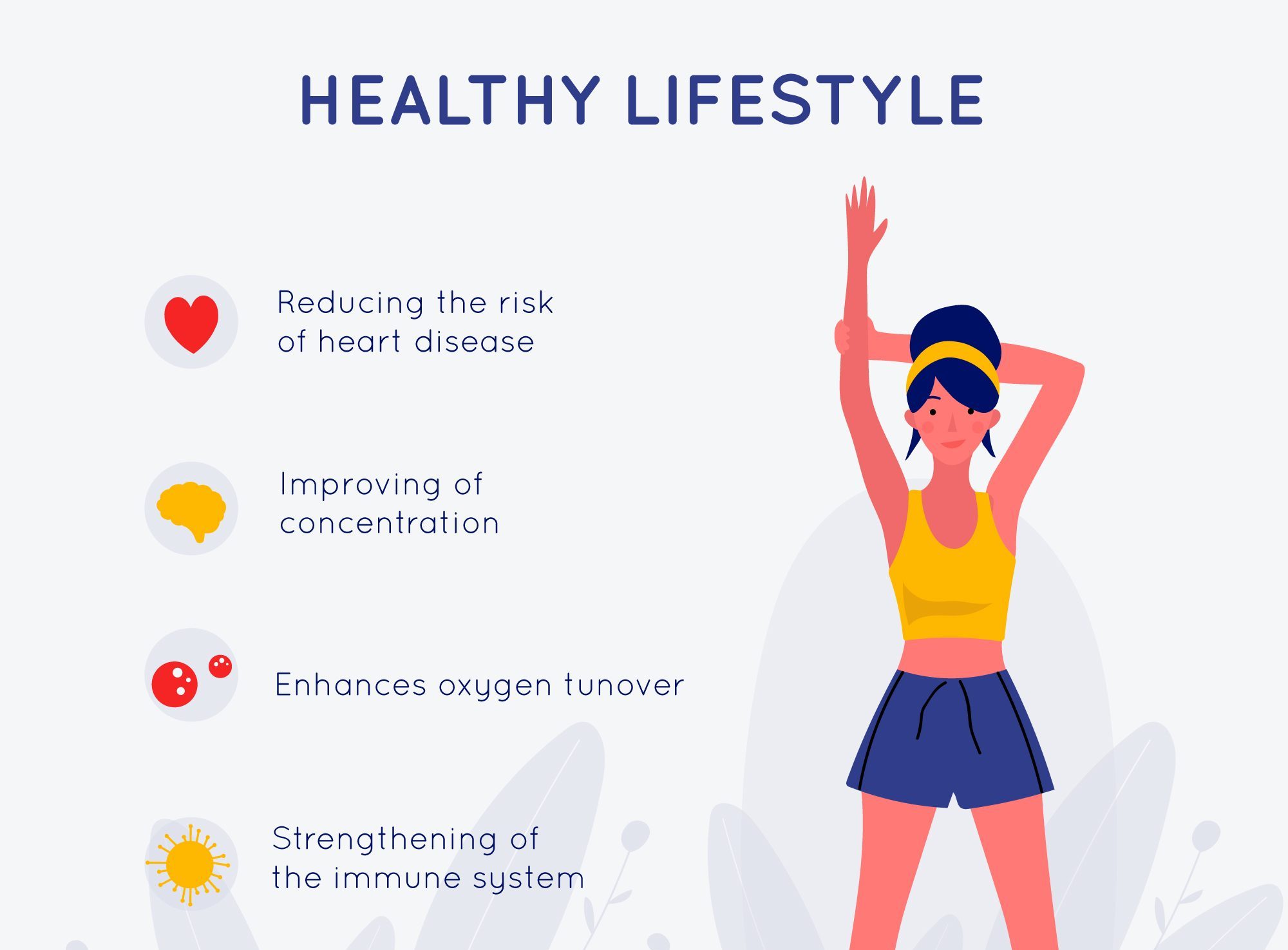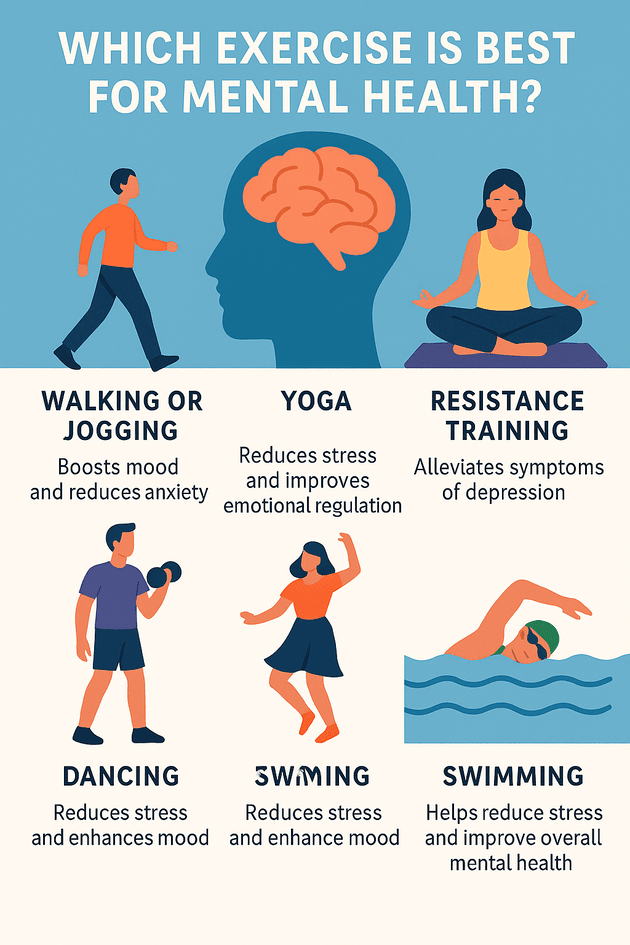When we see someone exercising or working out, the first thought that often comes to mind is that they’re trying to lose/gain weight, or trim their waistline. But, that’s not always the case. They might also be doing it for the underrated benefits of regular exercise for mental health.
Many people work out because of how it makes them feel afterwards. The dopamine rush (from the right source, this time) helps improve sleep, boosts self-esteem, and increases energy levels throughout the day.
Even studies support the above points. A survey done on 1.2 million adults found that people who exercised for 45+ minutes, at least 3 times per week, reported feeling significantly happier.
Over time, the benefits of regular exercise for mental health have been shown to include reduced risk of depression and anxiety. For those with chronic illnesses, consistent physical activity can even lower the risk of hospitalization by 50%.
So, now if you often find yourself overthinking, feeling anxious or stressed, you know exercise is your reset button and path to feel better again.
In this blog, I’m going to share my personal workout journey, challenges faced, and what kept me going.
Personal Journey: How Regular Exercise Improved My Mental Health

Until I turned 18, I never exercised. It just wasn’t something I thought about or felt was important in my daily life.
But I’ve always been an overthinker. My mind would constantly race, and I later realized it was because of my childhood trauma. My nervous system always felt on edge. I was anxious, stressed, and mostly emotionally drained.
Things started to change when I went to college. I began going for walks every day, just to clear my head and later, I also joined the gym.
Slowly, exercising became a regular part of my routine—not because I wanted to lose weight, but because it made me feel better. Calmer, confident in my body, happier. I could think more clearly, and my mood improved.
Even now, walking helps me relax. It’s something I look forward to every day. And I’ve learned it’s not just me—psychologists like Dr. Nicole LePera also talked about how walking can support mental health and help calm the nervous system.
What are The 4 Main Mental And Emotional Benefits Of Regular Exercise?
If you’re wondering what are the mental health benefits of regular exercise, here are the four most impactful ones backed by science:
- Reduces Stress and Anxiety
According to a study, exercising has the power to decrease stress by lowering our cortisol levels (stress hormone) and release endorphins. This helps calm the mind and reduce feelings of anxiety. - Improves Mood
Several studies show that doing regular workouts can lead to a happier state of mind. This is because physical activity boosts dopamine, serotonin, and endorphins. These are brain chemicals linked to happiness and emotional well-being. - Enhances Self-Esteem and Confidence
A study found that regular exercise can significantly improve body image. Moving your body regularly not only helps you feel better physically, it also builds self-esteem, enhances self-worth, and creates a sense of accomplishment. - Supports Better Sleep and Mental Clarity
Although several factors can affect your sleep quality, your level of physical activity appears to be particularly influential. Research found that exercise was associated with improvements in sleep quality, daytime sleepiness, insomnia.
Which Exercise is Best For Mental Health?
If you’re new to fitness and wondering where to start, here are some great options that support the benefits of regular exercise for mental health:

- Walking (especially outdoors)
Easy to start and doesn’t require equipment.
Helps reduce anxiety, improves mood, and clears the mind.
Bonus: Sunlight exposure boosts vitamin D and serotonin levels. - Yoga
Combines movement, breathwork, and has mind-body benefits.
Great for calming a dysregulated nervous system, reducing stress, and improving emotional balance. - Running or Jogging
Boosts endorphins (often called the “runner’s high”).
Proven to reduce symptoms of depression and anxiety. - Strength Training
Improves mood, focus, and self-esteem.
Builds mental resilience and discipline along with physical strength. - Dancing
Fun and expressive, helps release pent-up emotions.
Increases dopamine levels and can be a great social activity too.
Now the Main Question: How Do I Start Exercising For Mental Health?
If you treat working out like a task, it can feel overwhelming. But when you make it a natural part of your lifestyle, you’ll begin to experience the benefits of regular exercise for mental health effortlessly. Here’s how to get started.
- Start with Walks You Enjoy
Go for a walk while listening to your favorite music or a podcast—it helps clear your mind and feels less like a chore. - Workout First Thing in the Morning
Getting it done early sets a positive tone for the rest of your day and helps you stay consistent. - Start Small
Aim for just 3 days a week at first. No pressure—just move your body and build the habit slowly. - Keep It Fun
Mix things up—try yoga, dancing, strength training, or a YouTube workout. Change it up so you don’t get bored. - Bring a Friend
Exercising with a friend makes it more fun and keeps you motivated on the days you don’t feel like showing up.
Final Thoughts
The benefits of regular exercise for mental health go far beyond just the physical. Whether you’re dealing with stress, anxiety, overthinking, or emotional burnout—moving your body can help you feel lighter, calmer, and more in control. You don’t need fancy equipment or long workouts—just consistency and kindness to yourself. Start small, keep it enjoyable, and let it become your daily reset.





